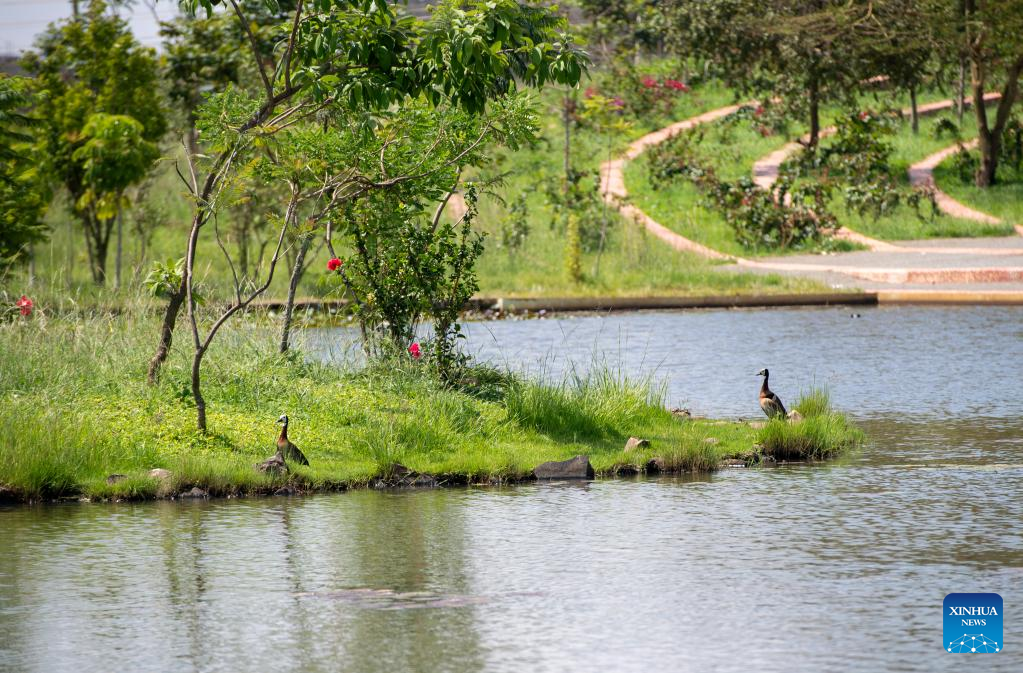
This photo taken on Dec. 18, 2022 shows a view of the botanical garden inside the Sino-Africa Joint Research Center (SAJOREC) in Nairobi, Kenya. (Xinhua/Li Yahui)
NAIROBI, June 16 (Xinhua) -- A stronger collaboration between Chinese and African scientists has reinvigorated ongoing endeavors to combat desertification, restore landscapes across the continent, and accelerate its transition towards a greener future, said a Kenyan scholar.
Chinese and African scientists have been in lockstep to confront desertification and other ecological crises, said Robert Gituru, director of the Sino-Africa Joint Research Center (SAJOREC), which is located on the main campus of Jomo Kenyatta University of Agriculture and Technology in central Kenya.
China-Africa scientific research, which is embedded in the China-proposed Belt and Road Initiative, has helped local efforts to halt the further spread of deserts in the continent caused by human activity and climate change, said Gituru.
Commending China's move to infuse green ethos in the Belt and Road infrastructure projects across Africa, he said that the continent is benefitting from the Asian country's practices on regenerating ecosystems.
"The green Belt and Road brings to us the thinking that in all our human development, always remember to incorporate environmental sustainability, whether it is in the construction of infrastructure, or in legislation," Gituru said.
Since its official launch in 2013, SAJOREC, which sits on 40 acres of land and has an expansive botanical garden, has been at the forefront of fostering collaborative research between African and Chinese scientists in diverse fields like agriculture and biodiversity conservation.
Thanks to the establishment of SAJOREC, Kenyan scientists have been able to publish an inventory of the country's rich flora and fauna, which is critical to generating tourism revenue, Gituru said.
With the Chinese-funded research center, African scientists have been enlightened on cutting-edge but affordable technologies that promote drylands management, he added.
Through collaborating with their Chinese partners, African scientists could also improve their capacity to harness microorganisms to control desertification, said the expert.
Rapid economic development in China that aligns with ecological renewal has been an inspiration to African scientists in their quest for a solution to desertification and loss of species worsened by the climate crisis, Gituru said.
"I would be happy if the rest of the world and Africa which is our home continue to put more emphasis on controlling desertification and for doing that, I can confidently say we have a helping hand from the Chinese people because they have that experience," he added. ■
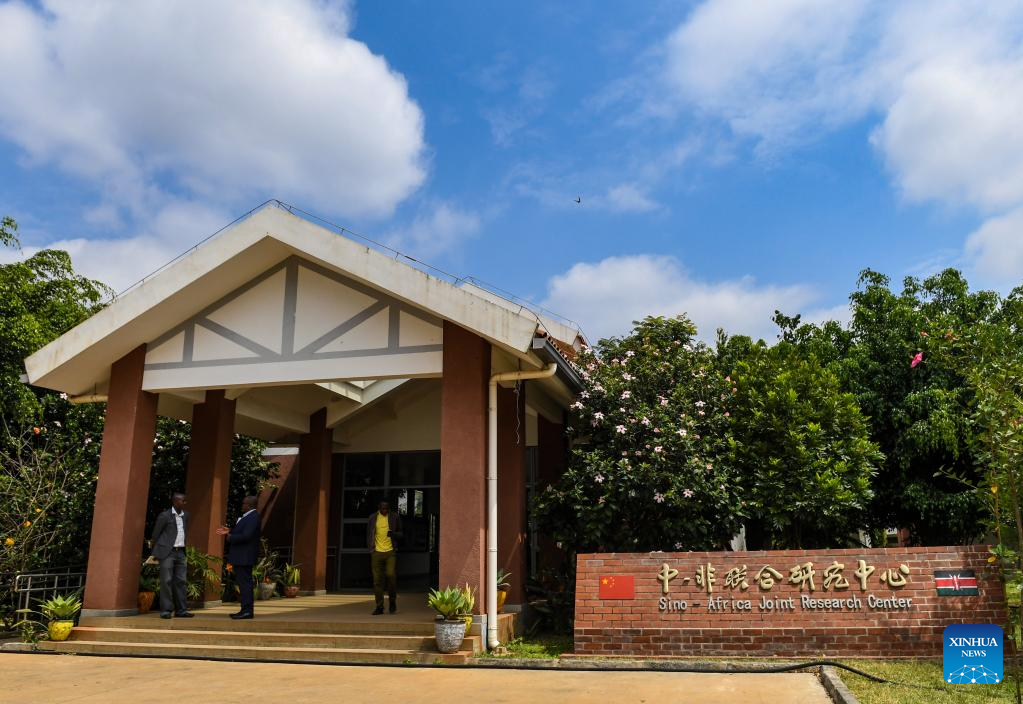
This photo taken on June 13, 2023 shows a view of the Sino-Africa Joint Research Center (SAJOREC) in Nairobi, Kenya. (Xinhua/Li Yahui)
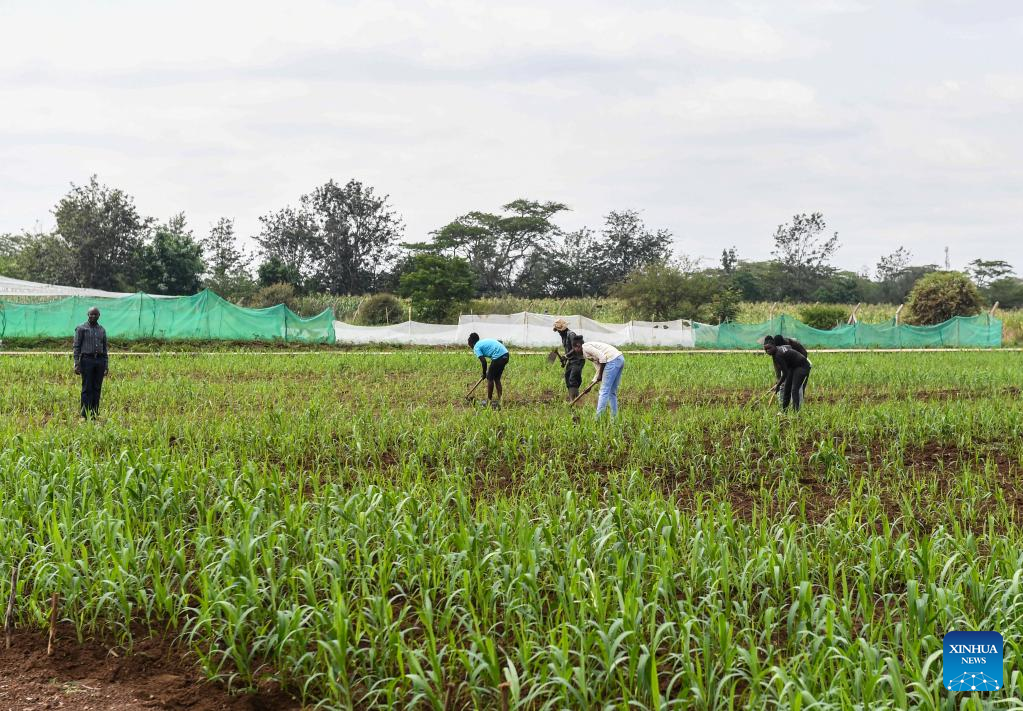
Employees work at the experimental plot of the Sino-Africa Joint Research Center (SAJOREC) in Nairobi, Kenya, June 13, 2023. (Xinhua/Li Yahui)
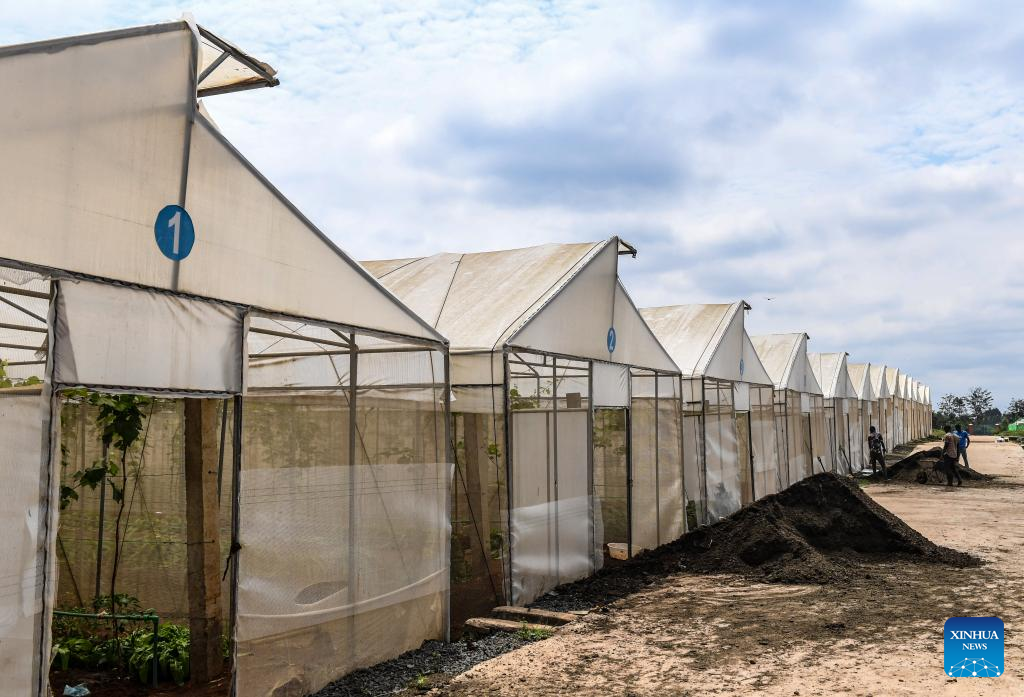
This photo taken on June 13, 2023 shows a view of greenhouses at the Sino-Africa Joint Research Center (SAJOREC) in Nairobi, Kenya. (Xinhua/Li Yahui)
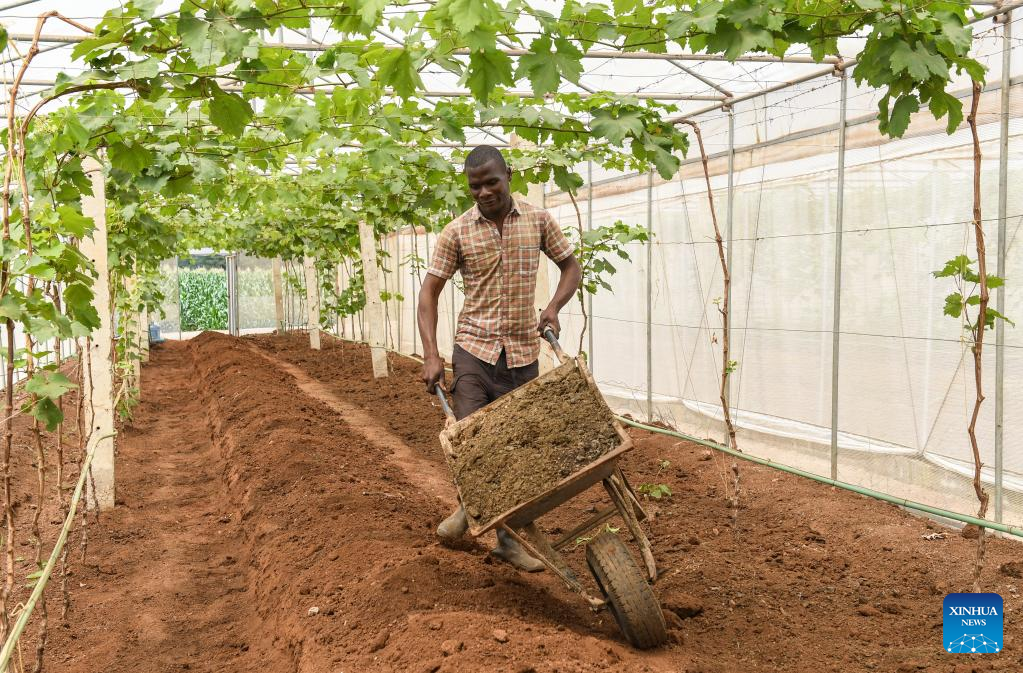
An employee works inside a greenhouse of the Sino-Africa Joint Research Center (SAJOREC) in Nairobi, Kenya, June 13, 2023. (Xinhua/Li Yahui)

Robert Gituru, director of the Sino-Africa Joint Research Center (SAJOREC), speaks during an interview with Xinhua in Nairobi, Kenya, June 13, 2023. (Xinhua/Li Yahui)



